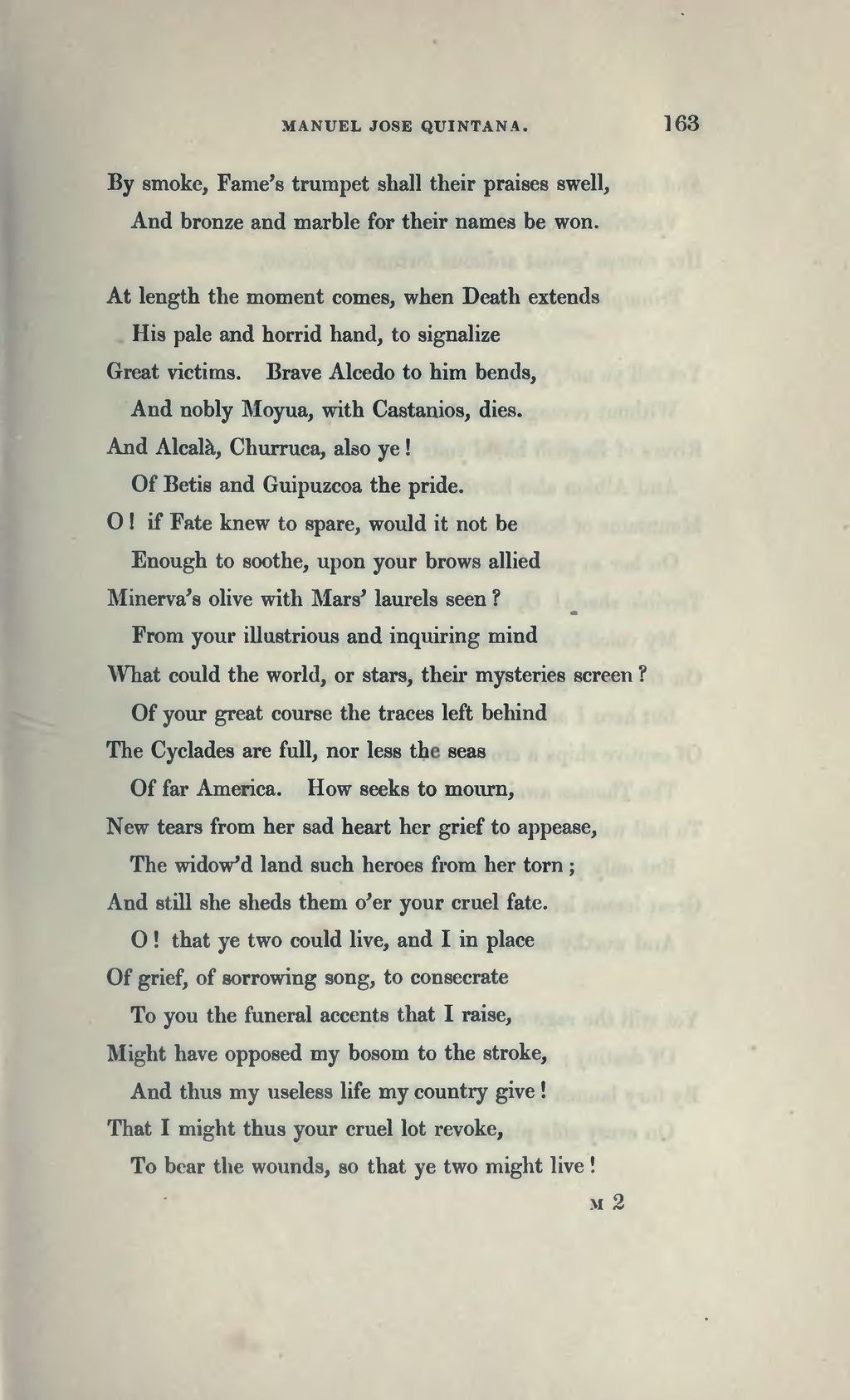By smoke, Fame's trumpet shall their praises swell,
And bronze and marble for their names be won.
At length the moment comes, when Death extends
His pale and horrid hand, to signalize
Great victims. Brave Alcedo to him bends,
And nobly Moyua, with Castanios, dies.
And Alcalà, Churruca, also ye![1]
Of Betis and Guipúzcoa the pride.
O! if Fate knew to spare, would it not be
Enough to soothe, upon your brows allied
Minerva's olive with Mars' laurels seen?
From your illustrious and inquiring mind
What could the world, or stars, their mysteries screen?
Of your great course the traces left behind
The Cyclades are full, nor less the seas
Of far America. How seeks to mourn,
New tears from her sad heart her grief to appease,
The widow'd land such heroes from her torn;
And still she sheds them o'er your cruel fate.
O! that ye two could live, and I in place
Of grief, of sorrowing song, to consecrate
To you the funeral accents that I raise,
Might have opposed my bosom to the stroke,
And thus my useless life my country give!
That I might thus your cruel lot revoke,
- ↑ Of those who fell at Trafalgar, the names of Alcalà and Churruca seem to be remembered with peculiar affection. The latter is referred to by Arriaza also, and seems to have been an officer of great skill and bravery in his profession, as well as of most amiable qualities in private life. Alcalà was an officer of very superior attainments. He was author of a learned Treatise on taking Observations of Longitude and Latitude at Sea, published at Madrid, 1796. With the copy of this work in my possession, there is bound up an unedited treatise of his original manuscript, 'On the Trigonometrical Calculation of the Height of Mountains.' He has already been referred to in Note 2. The Spanish navy is at the present day much distinguished for the superior attainments and character of the officers, as well as in former years. In addition to the poet Arriaza, they have to boast of the late learned Navarrete, one of the most eminent and industrious writers of our times, principally on scientific subjects connected with his profession, geography, hydrography, and voyages, though in various biographical works he has extended hislabours to the memory of poets and others, as well as the naval heroes of his country: see his memoir in Ochoa, vol. ii. p. 586, copied from one by the Bishop of Astorga.
